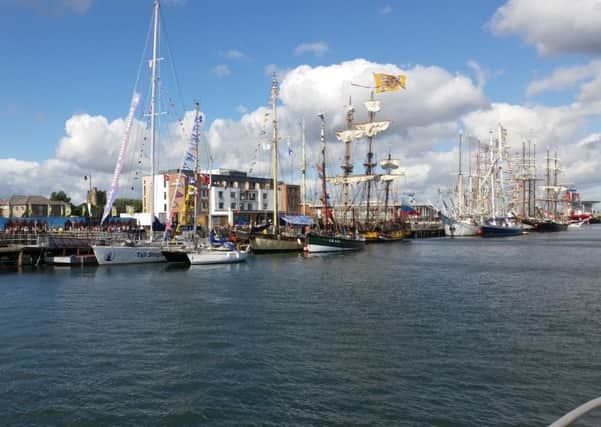TALL SHIPS: '˜Blyth has done us proud', says race chairman


Speaking to us earlier today, James Stevens, from organisers Sail Training International, said: “Blyth has done us proud, they’ve been really, really good and very welcoming. The whole town has thrown itself into doing this, which is great.
“It looks great too. I have got to say, I came to Blyth 30 years ago and they have done wonders to the waterfront. They have tried really hard and having the Tall Ships there just gives the perfect backdrop. I’m very impressed with Blyth; it’s an industrial port, but they have opened their doors to us.”
Advertisement
Hide AdAdvertisement
Hide AdAnd talking about the regatta and how it works, Mr Stevens underlined how the 600-mile race across the North Sea from Blyth, Northumberland, to Gothenburgh, Sweden, is really a youth event.
“Half the crews, half of all the trainees are young people under the age of 25, a lot of them haven’t sailed before and some of them are from quite disadvantaged backgrounds,” he said. “Some of them are sponsored by Blyth and some of them are paid for by Gothenburg.
“Most of them haven’t sailed at all so they’ll probably be pretty anxious now, wondering what they have let themselves in for, but that’s all part of it and you find that they look anxious now but when they get to Gothenburg, they’ll be three inches taller and part of a team.
“You can’t sail these ships unless you all pull the rope at the same time. It’s not going to work unless the crew are doing their jobs.
Advertisement
Hide AdAdvertisement
Hide Ad“It’s absolutely miles away from anything they have done before and the captains say that when they get out of mobile-phone coverage, they suddenly gel into a team. They can’t get on Facebook so then that (sailing the ship) becomes their life.”
But these events don’t just happen overnight with Mr Stevens describing the job of organising the regatta as ‘massive’.
“It starts several years in advance, about four or five years, so now Sail Training International is looking at events in 2020/2021,” he said. “It also takes a whole army of volunteers – I think we have about 60 or 70 here – including the liaison officers who meet the ships and help them with getting any food and provisions, if they’ve got problems, find out where the chandler’s shop is, any gas or water or fuel - all that has to be dealt with.”